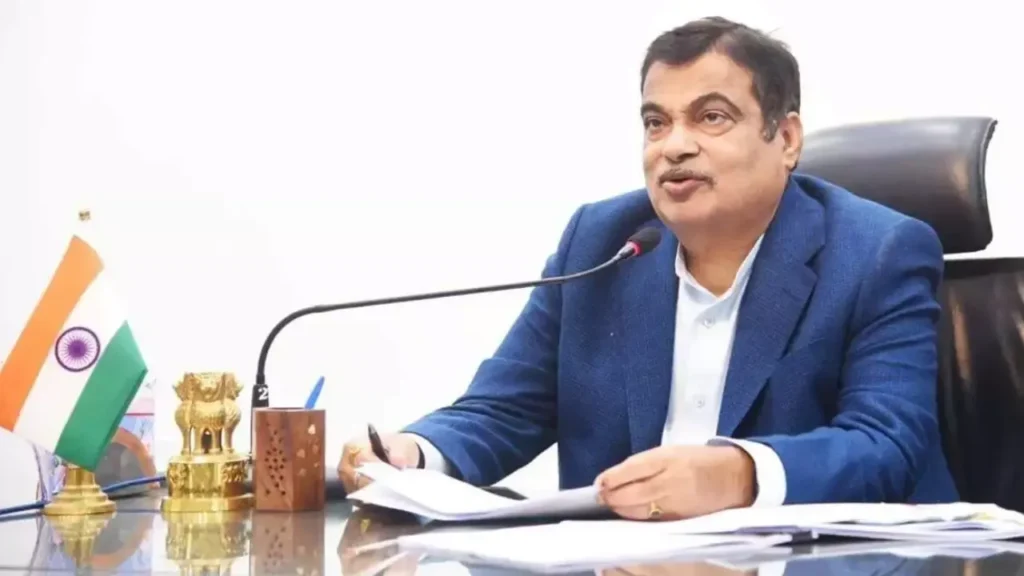Union Minister for Road, Transport, and Highways, Nitin Gadkari, has announced significant progress in India’s tunnel infrastructure. Speaking at ‘World Tunnel Day 2024 Conference on Safe & Sustainable Tunneling’, Gadkari highlighted that 75 tunnel projects worth an investment of ₹49,000 crore are currently under construction across country.
This announcement marks a significant step in India’s infrastructure development, aligning with government’s vision of creating world-class connectivity and supporting economic growth.
Transforming Infrastructure to Meet Global Standards
Gadkari emphasized pivotal role of infrastructure in achieving India’s ambitious economic goals. “Our Prime Minister has a dream to make India world’s third-largest economy. For this target, we need to have an international standard of infrastructure in country. Our government has given highest priority for development of good infrastructure in country,” he stated.
Minister’s address underlined government’s commitment to modernizing and expanding India’s road and transport networks to meet global standards.
Completed Projects: A Testament to Progress
Highlighting completed projects, Gadkari revealed that National Highways Authority of India (NHAI) has successfully finished 35 tunnel projects spanning 49 km at a total cost of ₹20,000 crore. These tunnels have improved connectivity across challenging terrains, facilitating smoother and safer transportation for millions of travelers.
completion of these projects serves as a benchmark for ongoing efforts in sector, showcasing potential of India’s tunneling technology and execution capabilities.
Ongoing Projects: Expanding Network
ongoing construction of 75 tunnel projects, covering 146 km and valued at ₹49,000 crore, is a clear indicator of India’s ambitious plans to expand its tunnel infrastructure. These projects are spread across various regions, including remote and hilly areas, where tunnels are essential for improving connectivity.
Key objectives of these projects include:
- Enhancing connectivity in mountainous and geographically challenging regions.
- Reducing travel time and fuel consumption.
- Boosting economic activities by improving access to remote areas.
Future Projects: A Vision for Next Decade
Looking to future, Gadkari announced plans for 78 new tunnel projects that will span 285 km, with an estimated investment of ₹1.10 trillion. These projects are expected to further revolutionize India’s infrastructure landscape.
Strategic Highlights of Future Projects:
- Geographical Expansion: Projects will focus on regions requiring enhanced connectivity, including Northeast, Jammu & Kashmir, and Uttarakhand.
- Technological Advancements: Adoption of cutting-edge tunneling technologies for efficient and sustainable construction.
- Job Creation: Generating employment opportunities for contractors, engineers, and consultants in tunneling industry.
Focus on Brahmaputra Tunnel
During his address, Gadkari highlighted an upcoming mega-project under Brahmaputra River in Assam. He mentioned discussions with Assam Chief Minister regarding construction of a large tunnel beneath river. This project is expected to:
- Improve connectivity across Northeast region.
- Boost trade and transportation efficiency.
- Serve as a catalyst for economic development in Assam.
“Today, tunneling is not only a vital component for road networks but also for hydro projects, metro systems, and railways,” Gadkari added, emphasizing multidisciplinary relevance of tunnel projects.
Tunnels as a Cornerstone of Modern Infrastructure
India’s focus on tunneling projects aligns with global trends where tunnels play a pivotal role in modern infrastructure. From reducing travel distances to connecting remote areas, tunnels are essential for sustainable and efficient transportation systems.
Benefits of Tunnel Projects in India:
- Improved Connectivity: Seamless travel across hilly and remote regions.
- Environmental Sustainability: Reduced vehicular emissions due to shorter travel routes.
- Economic Growth: Enhanced access to trade routes and markets.
- Safety: Providing safer alternatives to treacherous mountain roads.
Challenges in Tunnel Construction
While tunnel projects offer immense benefits, they also come with challenges, including:
- Geological Complexities: Varying terrains require advanced geological studies and techniques.
- Cost Management: Ensuring projects remain within budget while maintaining quality.
- Environmental Concerns: Minimizing ecological disruptions during construction.
- Technological Dependence: Adopting advanced tunneling machinery and expertise.
government’s focus on adopting modern tunneling technologies and fostering public-private partnerships is key to overcoming these challenges.
Conclusion
Nitin Gadkari’s announcement of 75 ongoing tunnel projects worth ₹49,000 crore highlights India’s commitment to building a robust and sustainable infrastructure. These projects are not just engineering marvels but also vital drivers of economic growth, connectivity, and environmental sustainability.
With successful completion of past projects and ambitious plans for future, India is poised to become a global leader in tunneling technology and infrastructure development. As these projects progress, they will undoubtedly transform India’s transportation landscape, bringing vision of world-class infrastructure closer to reality.
Disclaimer
This article on 75 Tunnel Projects Worth ₹49,000 Cr Under Construction: Gadkari is based on publicly available information and credible sources. While every effort has been made to ensure accuracy, readers are encouraged to verify details independently. This content is for informational purposes only and does not constitute professional advice.


